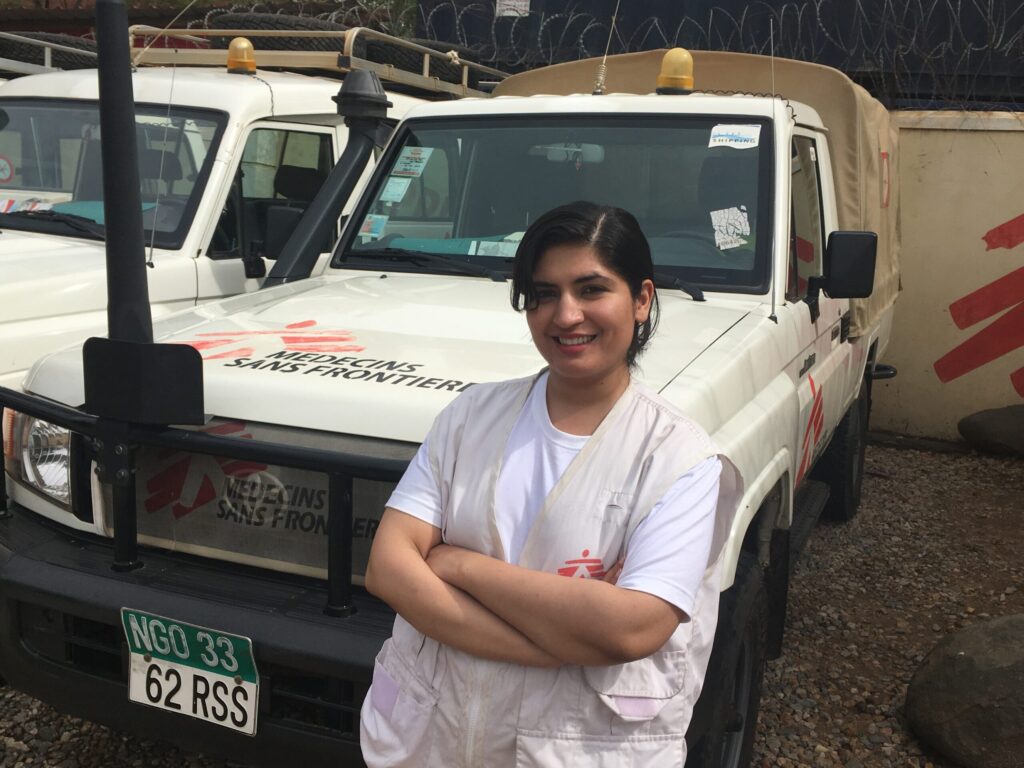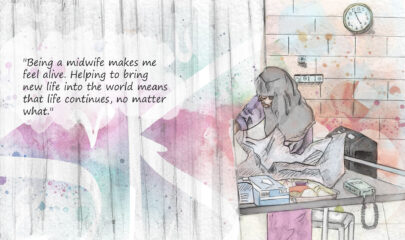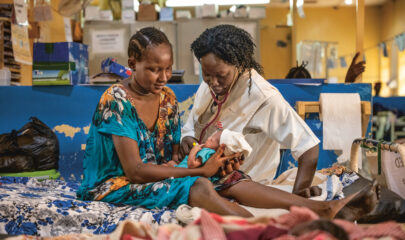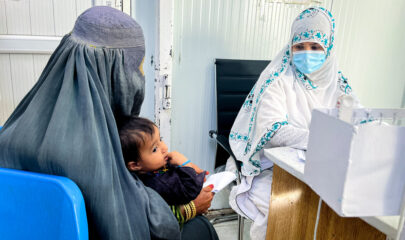“WE ARE NOT SURE THAT WORDS CAN ALWAYS SAVE LIVES, BUT WE KNOW THAT SILENCE CAN CERTAINLY KILL.”
On Dec. 10, 1999, Doctors Without Borders/Médecins Sans Frontières (MSF) was awarded the Nobel Peace Prize in recognition of our pioneering humanitarian work. Dr. James Orbinski, Canadian physican and then MSF international president, shared the above powerful words in his acceptance speech.

Today, more than 25 years later, as we continue to witness some of the starkest humanitarian crises around the world, these words seem more relevant than ever.
Over the past year, extreme violence has torn through Gaza, killing more than 46,000 Palestinians and displacing 1.9 million people, often multiple times. The crisis has dominated headlines throughout 2024, but they don’t fully convey the level of catastrophe our teams are witnessing. Despite the risks, MSF staff continue to provide emergency medical assistance and speak out about what they are seeing and experiencing.
In Sudan, an unabated civil war has forced more than 11 million people from their homes, making it the largest refugee crisis in the world. Thousands of people are facing crisis levels of hunger. In many parts of the country, we remain completely alone and are the only international medical organization able to provide care. MSF has been continuously raising the alarm on this underreported conflict.
When the scale of devastation exceeds all thresholds, we know silence is not an option. This holds true in Gaza, Sudan and many other places across the globe. “Our action and our voice are acts of indignation, a refusal to accept an active or passive assault on the other,” says Orbinski in his speech.
“It is in these individual acts of solidarity that we find hope and the strength to continue.”
In this edition of Dispatches, we share with you photographs of people from around the world affected by crises in the past year – people who have lost their families, loved ones, homes and, sometimes, themselves. These photographs convey stories of heartbreak and destruction. But they also tell you the story of humanity: individual human beings from various corners of the world reaching out to help those facing some of the world’s most challenging crises.
Witnessing a year filled with conflict, it is difficult to feel optimistic. But it is in these individual acts of solidarity that we find hope and the strength to continue providing vital medical care, to bear witness and to speak out.
Today, as we prepare for both the foreseeable and unforeseeable challenges 2025 may bring, let us, as humanitarians, hold on to that hope.
From all of us at MSF and the people we assist, we are grateful for your compassion and trust. Thank you for being a part of our global movement.


